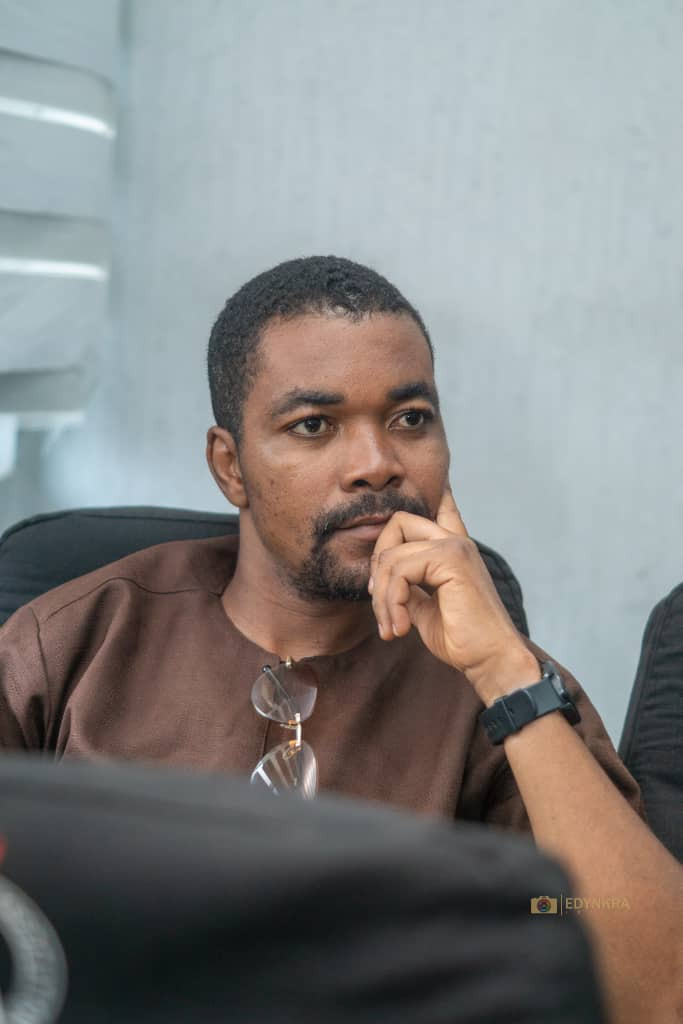Mr. Jude Edem Kweku Govinah, MIoD, CPAP, DocFAI is a well-groomed Leadership and Management Consultant, and a fast-rising versatile Ghanaian leader of his time. He is, through education, grooming, and experience in the upstream of Leadership Development, making his way up in the wonderful journey of leadership to be one of the most sought-after think tanks on issues relating to Servant Leadership, Transformational Leadership, and Trans-Generational Leadership issues.
As a renowned and sought-after Leadership Consultant, Mr. Jude Edem Kweku Govinah, MIoD, has been and continues to be instrumental in major decisions of Leadership Management in both Christian and Circular spheres of life.
Mr. Govinah is currently the Central West Territorial Youth Leader of the Christ Apostolic Church International. He is also a member of Praying Husbands International Ministry, a group of men who have decided to stand in the gap for their families. He is also a member of New African Leadership, a consortium of upcoming leaders who are making a great impact on the youth of Africa across all boundaries.
He had his Basic education at Mfantsipim Basic School in Cape Coast. He then proceeded to the University of Cape Coast Senior High School, formally known as UPSS for his Secondary education. While in UPSS, he took General Arts. Apart from classroom studies, Mr. Jude Edem Kweku Govinah had a keen interest in the school’s Drama, Debaters, and Writers Club, and also the Cadet Corp of the school.
After Completing his Secondary education, he had his first degree at the University of Cape Coast, where he completed a degree in Religion and Human Values, and Philosophy. While at the University, he was a member of the University Community Mass Choir Mass Drama, of which he eventually became an executive. He was also a member of the Ghana Fellowship of Evangelical Students (GHAFES) and an active member of Echoes of Calvary.
Mr. Govinah is also a Professional Administrator and a Management Consultant. He is Doctoral Fellow of the African Institute of Public Administrators (AIPA), where he is a certified professional member. He is a Member of the Institute of Directors, Ghana (IoD, Gh) and the African Corporate Governance Network (ACGN). He holds a Master of Business Administration (MBA) with an HR option from the University of Cape Coast. Mr. Govinah also holds a Post Graduate Training Certificate in Leadership and Organisational Effectiveness from the University of Buffalo, in Buffalo New York in the United States of America (USA). He is also a graduate of the Livingstone School of Leadership (L. S. L.) where he holds a certificate in Transformational Leadership. It was during his study at L.S.L. that Mr. Jude obtained the Emerging Leader Award.
Jude is a Master Mentor with years of experience mentoring students of UB-UCC Leadership Empowerment Academy where he assisted in the training and running of the Leadership program. He is also a sought-after public speaker who speaks on a variety of issues including Christian Leadership, Branding, Elevator Pitch, Presentation Skills, and other related issues.
He is also a senior tutor at the University of Cape Coast College of Distance Education (CoDE) who teaches Leadership and Emotional Intelligence, and Leadership and Organisational Effectiveness. He also offers Consultancy Services across all spheres of Leadership.
Currently, Mr. Jude works in the University of Cape Coast where he serves as the Sectional Administrator of the Electricity Section. He had previously served as Administrator in both the Dean’s office of the Faculty of Arts, the Sports Section and the Department of Imaging Technology and Sonography all in the same University. His impact in all these places is very notable.
Mr. Govinah, MIoD, CPAP, DocFAI is a Christian who believes in and tries to adhere to the tenets of his faith. His main aim is to make his God proud and represent Him to his generation. He is a very disciplined and affable person who believes in creating genuine and quality relationships that transcend time.
His fun fact is quoted from his experience in scripture about the frailty of humanity, and it is given as follows: THE VESSEL IS WEAK AND FRAIL, ONLY GOD CAN SUSTAIN IT.
